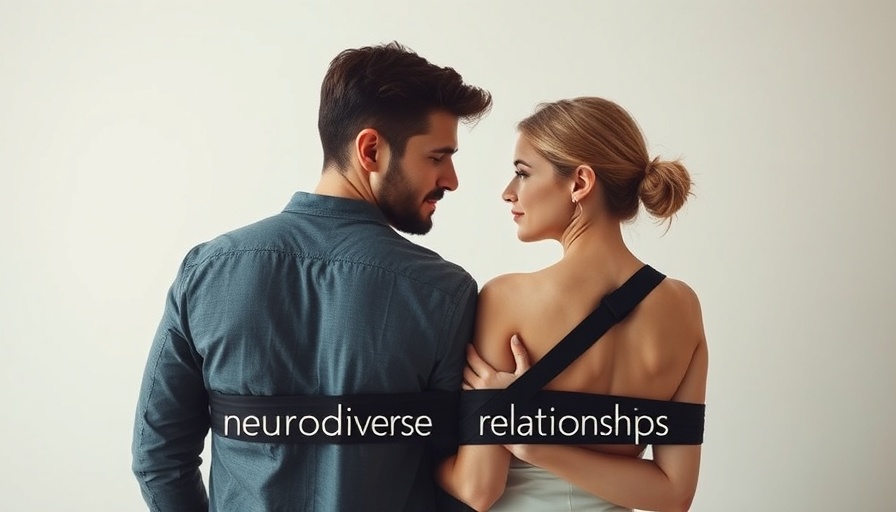
A Deep Dive Into CoDependency in Neurodiverse Relationships
In today's increasingly complex world, understanding the intricate dynamics of neurodiverse relationships is essential, particularly regarding the phenomenon of codependency. This issue often arises when one partner assumes the emotional burdens of the other, leading to an unbalanced, unhealthy relationship dynamic.
Understanding Codependency and Neurodiversity
Codependency frequently manifests in relationships where one partner is neurodiverse—most commonly with conditions such as ADHD, autism spectrum disorders, or anxiety disorders. In these cases, emotional responses can be amplified, creating a compelling environment for codependency to take root.
For instance, a neurodiverse individual might have heightened sensitivities to stress and anxiety. Their partner, often feeling the need to accommodate or ‘fix’ their loved one's emotional state, may inadvertently overextend themselves. This results in a cycle where the neurotypical partner neglects their needs and boundaries.
The Emotional Toll: How Codependency Affects Both Partners
Additionally, codependency can lead to significant emotional exhaustion for both partners. The neurodiverse individual might feel constantly misunderstood or controlled, while their partner may experience guilt or resentment for feeling ‘stuck’ in a nurturing role. This dynamic can create a toxic cycle, where both parties find it challenging to express their authentic selves.
Breaking the Cycle: Practical Steps to Recovery
Understanding codependency is the first step toward breaking the cycle. Partners can benefit from identifying their triggers and practicing open, honest communication. Here are some actionable tips:
- Set Clear Boundaries: Establishing personal limits doesn’t imply a lack of care; it’s about ensuring both partners can thrive.
- Seek Professional Help: Counseling or therapy can provide strategies specific to neurodiverse dynamics, helping both partners navigate their relationship more effectively.
- Practice Self-Care: Both partners must prioritize their own mental health by engaging in activities they love and grounding themselves in personal interests.
The Role of Education in Understanding Relationships
As educators and influencers, there is a crucial role to play in supporting individuals in neurodiverse relationships. Workshops focusing on emotional intelligence and relationship dynamics can empower individuals, fostering a more nuanced understanding of these connections.
Indeed, education can be a powerful tool for breaking stigma and encouraging proactive approaches to relationship challenges. By understanding the unique layer of emotional needs that neurodiverse individuals experience, we can cultivate environments that promote mutual respect and emotional balance.
Inspiring Change: Conversations and Insights
Many individuals are now sharing their journeys regarding codependency in neurodiverse relationships, offering a sense of community and support. These narratives can help illuminate shared experiences, providing much-needed encouragement and understanding. Consider joining forums or support groups that discuss these issues, as shared stories can motivate individuals to take action.
Conclusion: Moving Forward Together
As we continue to explore the layers of codependency in neurodiverse relationships, it's essential to remain vigilant about our emotional health and the health of those we love. Whether you're experiencing these dynamics personally or seeking to support someone who does, exploring resources and building a community can encourage healing and resilience.
This knowledge not only enriches personal connections but can also empower you to foster inclusive environments in your educational or professional settings. If you’re feeling inspired, dive deeper into these discussions, and start advocating for healthier relationship dynamics today!
 Add Row
Add Row  Add
Add 




 Add Row
Add Row  Add
Add 

Write A Comment